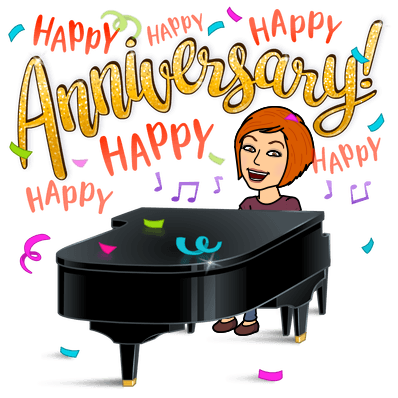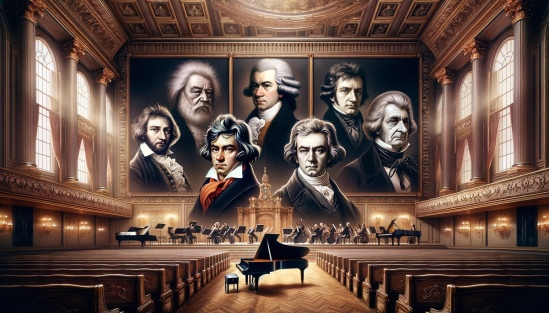![]() 1879 ~ Sir Thomas Beecham, English conductor. Founded the Royal Philharmonic Orchestra in 1947 and did much to promote the works of Delius, Sibelius and Richard Strauss.
1879 ~ Sir Thomas Beecham, English conductor. Founded the Royal Philharmonic Orchestra in 1947 and did much to promote the works of Delius, Sibelius and Richard Strauss.
Read quotes by and about Beecham
. 1895 ~ Sir Malcolm Sargent, English conductor, born. He was in charge of the Liverpool Philharmonic Orchestra from 1942 until 1948 and of the BBC Symphony Orchestra from 1950 until 1957.
![]() 1899 ~ Duke Ellington, American jazz pianist, bandleader and composer
1899 ~ Duke Ellington, American jazz pianist, bandleader and composer
Read quotes by and about Ellington
More information about Ellington
![]() Grammy winner
Grammy winner
. 1913 ~ Donald Mills, Singer with The Mills Brothers.
. 1925 ~ Danny Davis (George Nowland), Grammy Award-winning bandleader with Danny Davis and the Nashville Brass. Best Country Instrumental Performance in 1969, Country Music Awards Instrumental Group of the Year 1969 to 1974
. 1927 ~ Carl Gardner, Singer with The Coasters
. 1931 ~ (Anthony James) Lonnie Donegan, Folk singer, musician: guitar, banjo
. 1933 ~ Rod McKuen, Singer, poet-songwriter
. 1936 ~ Zubin Mehta, Indian conductor, Los Angeles Philharmonic Orchestra, and violinist
. 1936 ~ April Stevens (Carol Lo Tempio), Singer
. 1943 ~ Duane Allen, Singer with the Oak Ridge Boys
. 1947 ~ Tommy James (Jackson), Singer with Tommy James and The Shondells
. 1949 ~ Francis Rossi, Musician, guitar and singer with Status Quo
. 1958 ~ The Broadway musical “My Fair Lady” opens for its first night in London, with Rex Harrison as Professor Higgins, and Julie Andrews playing Eliza Doolittle. Tickets for the show cost just over £1, the first month is sold out before opening night.
. 1968 ~ Hair made its way from Greenwich Village to Broadway. The show certainly opened eyes. It was the first time that actors appeared nude in a Broadway musical. Hair ran for 1,844 shows on and off Broadway. It was even more successful in its London run later. Big songs from the show: Hair (The Cowsills) and Aquarius/Let the Sunshine In (The 5th Dimension).
. 1969 ~ Sir Duke, Duke Ellington, celebrated his 70th birthday. He was honored with the presentation of the Medal of Freedom, the U.S. government’s highest civilian honor.
. 2001 ~ Opera diva Rita Nellie Hunter, a powerful soprano celebrated for her fine Wagnerian performances, died at the age of 67. Hunter, originally from Wallasey, England, was best remembered as the quintessential Brunnhilde of Wagner’s “Ring” cycle, which she performed in London, New York, Germany and Sydney. Hunter’s agile voice led her through performances of Verdi’s “Aida,” and “Macbeth,” Puccini’s “Turandot” and Strauss’ challenging “Elektra.” Despite her remarkable voice, Hunter did not reach international stardom. Her physical size, at a time when the opera was seeking slimmer performers, and the fact that she sang roles primarily in English, kept her from achieving global fame. Hunter married tenor John Darnley Thomas in 1960, and after his death in 1994, took over management of his Singing Academy in Sydney.







